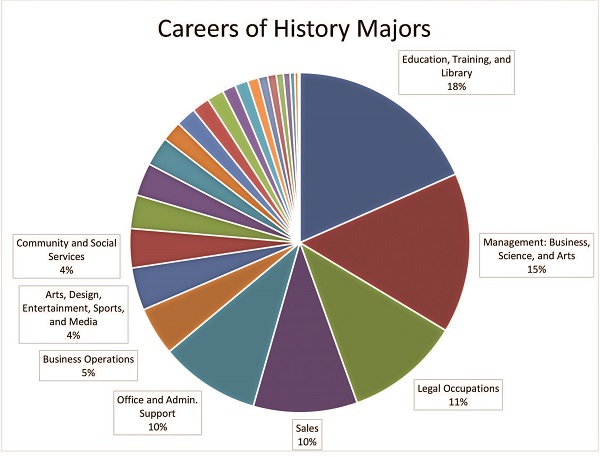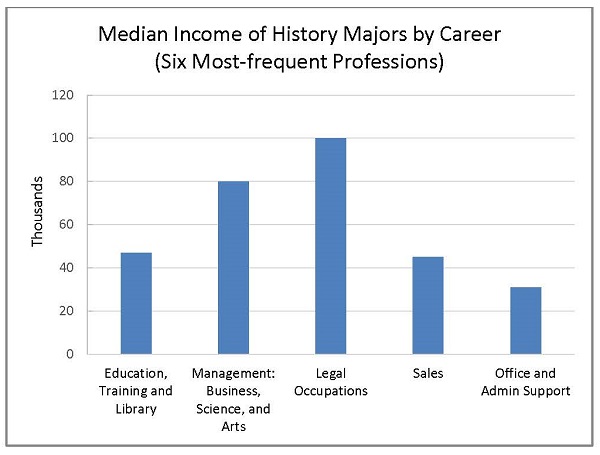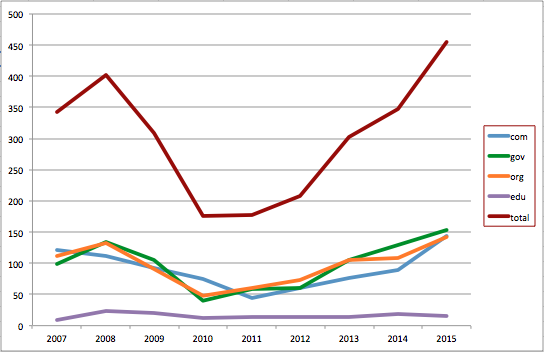What Can You Do With A History Major?
What do Facebook co-founder Chris Hughes, U.S. Supreme Court justices Elena Kagan and Anthony M. Kennedy, investigative journalist Seymour Hersh, British prime minister Gordon Brown, and a huge proportion of Business Executives and Public Policy professionals all have in common? They were history majors - as were thousands of other influential people who continue to shape our modern world. History is the oldest and most rigorous subject in the humanities, incorporating humanistic and scientific methodologies - and desired by employers who are saturated with STEM majors, and who wish for historically trained students.
History majors go places and do great things. Just ask the folks in the White House. One recent study found that more U.S. presidents majored in history than in any other discipline. History matters, and the possibilities its study opens to majors are limitless.
Chief Executives in Fortune 500 companies regularly say that studying history provides practical training for making informed choices in almost any arena. Historians critically examine past decisions, look for patterns, analyze similar situations, and make decisions accordingly. If someone says "what can you DO with history" the answer is "make informed decisions at every level." And that is an answer that business, law, policy, and educational fields all desire.

This isn't just talk: data from the American Community Survey, conducted annually by the US Census Bureau, shows history majors thriving in a diverse array of fields, especially in legal occupations:

In fact, History is the Pre-Law discipline. History majors across the US consistently score highest on LSAT Pre-Law national tests. In 2014-2015, History majors had the highest average LSAT score (156.35), the highest median GPA (3.42), and the highest percentage of applications accepted (85.92%) out of the 5 majors with more than 3,000 applications.
A degree in History is also good preparation for a career in Diplomatic Corps, State Department, and Foreign Service jobs. Check out job listings posted at the State Department and Federal Government application sites.
The field of Public History (specifically, Historic Preservation, Museum Curators, and Archivists) is expected to grow by 17% in the next three years from 2017. Annual trends of Historic Preservation job openings posted on PreserveNet tracked by economic sector (commercial businesses and consulting firms; governmental offices; non-profit organizations; and academic institutions) shows that employment in the education sectors has stayed flat while the private and public sectors it is growing.

As a history major, you will have a chance to learn from experts who study different parts of the world. They will help you gain insight into the histories and cultures of places beyond our borders, making you that much more prepared to succeed within an increasingly global society and marketplace - both in the public and private sector. For more information on careers available to history majors, take a look at the AHA’s career guide.